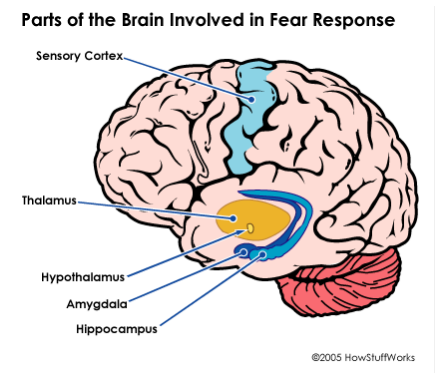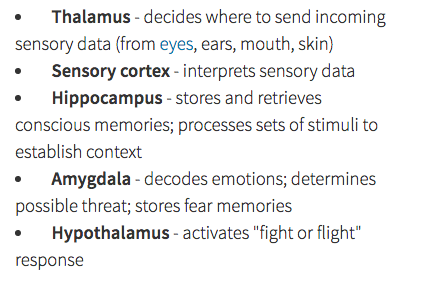Happy Halloween! In the spirit of today, we wanted to share our biggest fears, and do a little research on why we’re afraid of them.
What’s you biggest fear?
Jillian- Beauty Editor
My biggest fear are blue whales, specifically the one hanging in the Natural History museum.
Danielle- Fitness Editor
Dogs. Especially barking dogs.
Shauna- Health Editor
Tornadoes. When there’s even a tornado warning I start sweating.
So why are we afraid of these things? According to Psychology Today, “fear” is an emotion all creatures feel. Fear can come from a traumatic experience, a sense of reaction when danger is in front of us, and it can even branch from things our mother’s were afraid of when we we’re in their womb.
But what is “fear?”
According to HowStuffWorks, fear is a chain reaction in the brain. Starting with a stressful stimulus and ending with a release of chemicals that results in: increased heart rate, changes in breathing, energy in the muscles, sweating, etc. (Aka, the fight or flight response)
Check out these tips on how our brain works when we’re feeling fearful.
So let’s say, you’re afraid of heights. The fear of heights may have come from your mother’s fear of heights, a nasty fall you’ve had, or even an intellectual response to knowing you could fall and injure yourself. Say you’re afraid of height, and on a bridge. First, stressors in your brain release chemicals that stimulate different responses in your body. Once your body registers that you’re on a bridge, in a heightened place, physically, your brain decodes that fear and interprets where you are, sending your body into a fearful state: sweating, crying, muscles tensing, etc. Once you get off of the bridge your brain recognizes that you’re no longer in a place of danger (not that a bridge is dangerous, but your fear of heights makes your body think that it could be potentially dangerous to be on a bridge), the reactions begin to slow down. You’ll start sweating less, breathing more normal and become relaxed, or possibly exhausted.
So, what are you afraid of?
 Food
Food Farmers
Farmers Sustainable Living
Sustainable Living Living Planet
Living Planet News
News

